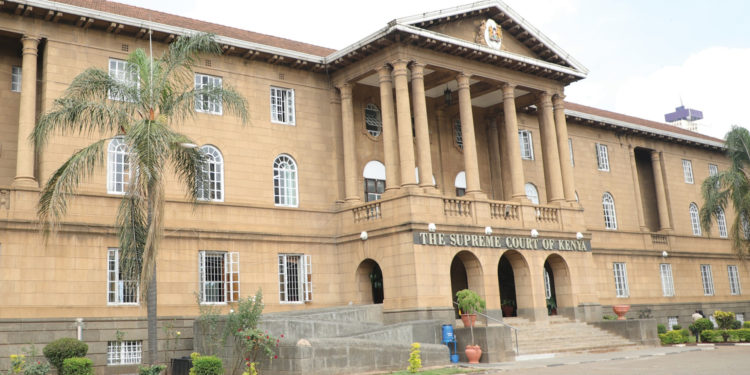The Supreme Court of Kenya has stayed a ruling by the Court of Appeal that declared the Finance Act, 2023 unconstitutional, citing the significant public interest and potential economic disruption that could arise from immediately enforcing the lower court’s decision. The stay was granted pending the hearing and determination of consolidated appeals by the National Treasury and other government entities.
In a decision of immense consequence for the country’s fiscal policy, the Supreme Court recognized the gravity of the potential ramifications should the Court of Appeal’s ruling take immediate effect. The appellants, led by the National Treasury, argued that the nullification of the Finance Act, 2023, would result in a KES 214 billion revenue shortfall, potentially leading to a constitutional crisis and severely disrupting public services.
“The issues raised are of significant public interest, with far-reaching consequences on government operations and the economic stability of the country,” the Supreme Court noted in its ruling.
The case arose from a series of petitions challenging the constitutionality of the Finance Act, 2023, which the High Court and the Court of Appeal scrutinized. At the heart of the legal dispute are several critical issues:
Legislative Process Violations
The initial challenge was based on claims that the legislative process leading to the enactment of the Finance Act, 2023, violated constitutional requirements. The petitioners contended that the Act did not comply with Articles 220 (1) (a) and 221 of the Constitution, which govern the budget-making process. These provisions mandate a comprehensive and participatory approach to budget formulation, which the petitioners argued was circumvented.
The High Court, in its ruling, found merit in these arguments, concluding that specific provisions of the Act were unconstitutional. However, it was the Court of Appeal that delivered a more sweeping judgment, declaring the entire Finance Act, 2023, unconstitutional due to fundamental flaws in its enactment process. The appellate court highlighted a lack of adherence to the requirements for public participation under Article 10 of the Constitution, a key pillar of Kenya’s legislative framework.
Court of Appeal’s Findings
The Court of Appeal’s ruling was notable for its comprehensive nature. It not only invalidated the Finance Act, 2023, but also singled out specific sections as particularly problematic. Sections 76 and 78 of the Act, which amended the Kenya Roads Act, 1999, were deemed unconstitutional, with the court ruling that the amendments were improperly enacted.
Further, the Court of Appeal addressed the question of whether the concurrence of both houses of Parliament was necessary under Article 114 for the passage of the Finance Act. The court held that such concurrence was not required, a decision that drew criticism from various quarters for its potential implications on legislative oversight.
The ruling also invalidated other significant provisions of the Finance Act, including sections 30-38, 52-63, and 23-59, which pertained to critical areas of tax law and public finance management. The court’s decision to strike down these provisions was based on the argument that they were passed without proper legislative scrutiny and public participation.
Supreme Court’s Intervention
In response to these developments, the National Treasury, along with other appellants, swiftly moved to the Supreme Court, seeking relief from the Court of Appeal’s ruling. The Supreme Court, in its interim orders, acknowledged the complex legal and constitutional questions at play. However, it placed particular emphasis on the potential economic fallout from enforcing the Court of Appeal’s judgment.
The appellants painted a dire picture of the consequences of nullifying the Finance Act, 2023, warning of a massive budgetary shortfall that would cripple government operations. The Supreme Court was persuaded by these arguments, leading to its decision to stay the Court of Appeal’s ruling.
“The potential for disruption to government services and the economy is too great to ignore,” the Supreme Court noted, adding that allowing the lower court’s ruling to stand, even temporarily, would lead to an untenable situation.
Public Interest and Economic Impact
The argument that ultimately swayed the Supreme Court was the potential impact on public interest. The appellants highlighted the possibility of a constitutional crisis, should the government be unable to meet its financial obligations due to the annulment of the Finance Act, 2023. They also pointed to the broader economic consequences, including reduced investor confidence and instability in the financial markets.
The Supreme Court’s decision to stay the Court of Appeal’s ruling ensures that, for the time being, the provisions of the Finance Act, 2023, remain in force. This outcome provides temporary relief to the government, which can continue to collect revenue and fund public services while the legal battle continues.

















